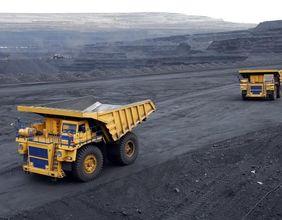Highlights
- Australian shares face sharp declines following new US tariffs.
- Major sectors including materials, energy, and financials hit hard.
- Global trade war fears intensify market volatility.
In a dramatic start to the trading day, the Australian stock market witnessed a significant drop, primarily driven by growing apprehensions of a potential global recession. This anxiety has been fueled by recent developments in international trade policies, particularly due to the imposition of new tariffs by the United States.
As trading commenced, the S&P/ASX 200 index (ASX:XJO) plummeted, recording a loss of 468 points, which translates to a 6.1% decline, positioning the index at 7,199.80. This downturn was mirrored across all eleven sectoral indices, signaling a broad-based retreat from equities by investors.
The sharp fall in the Australian market is part of a larger pattern of global market instability. This follows a considerable downturn in U.S. stock futures, which occurred after-hours on Sunday. This trend indicates a potential continuation of the market sell-off that commenced last week, erasing substantial value from equity markets worldwide. This sell-off was triggered by the U.S. administration's announcement of sweeping tariffs, which not only affected domestic markets but also had a pronounced impact globally.
In response, China introduced retaliatory tariffs last Friday, further exacerbating the situation. This move by China has pushed major U.S. indices like the Nasdaq Composite (NASDAQ:COMP) into bear market territory and the Dow Jones Industrial Average (DJIA) into a state of correction. These developments have significantly heightened fears of a full-blown global trade war, which could have far-reaching effects on the global economic landscape.
Within the Australian market, specific sectors felt the brunt of the downturn more severely. The materials sector saw significant declines with major players such as BHP (ASX:BHP), Rio Tinto (ASX:RIO), and Fortescue Metals Group (ASX:FMG) all witnessing stock price drops ranging from 6% to 9%. Similarly, in the energy sector, prominent companies like Woodside Petroleum (ASX:WPL) and Santos (ASX:STO) saw their values decline by 8% and 10%, respectively. The financial sector was not spared, with the Big Four banks experiencing losses between 7% and 8%.
Technology stocks also faced downward pressure, with firms like WiseTech Global (ASX:WTC) and Xero (ASX:XRO) recording losses exceeding 5%. This widespread decline underscores the intense nervousness pervading the market, driven by the uncertainty of the ongoing trade disputes and their potential implications for global economic stability.

_04_07_2025_01_22_32_583053.jpg)




